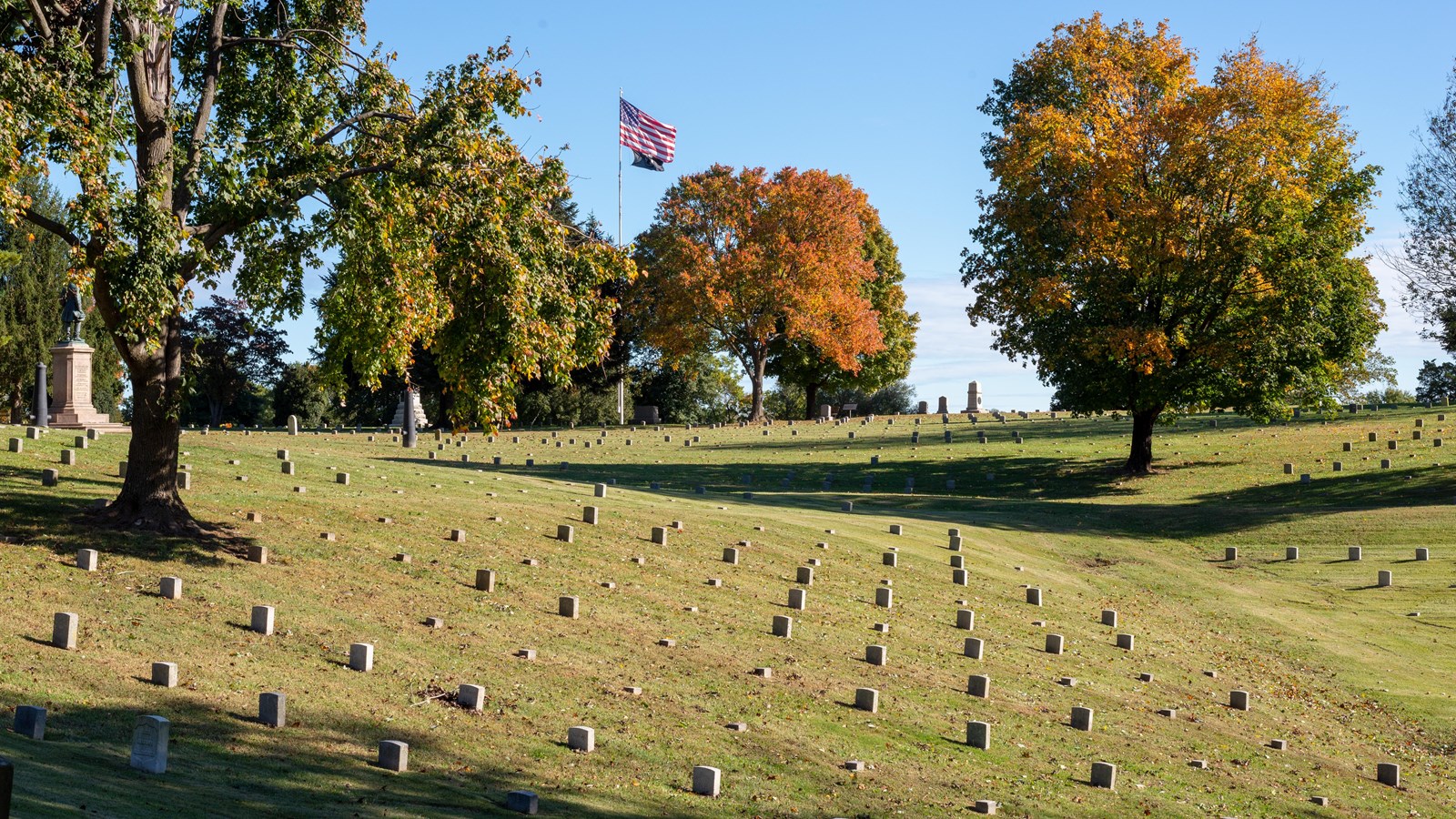Last updated: August 22, 2024
Place
Fredericksburg National Cemetery

NPS Photo
Historical/Interpretive Information/Exhibits
- The Fredericksburg National Cemetery is open every day, from sunrise to sunset.
- Pets are not allowed in the Fredericksburg National Cemetery.
- As you enter the cemetery, you will encounter steep slopes and uneven ground. Please watch your footing.
About the Cemetery
When the Civil War ended, thousands of battle casualties lay under stark mounds of earth, with very little to identify the soldiers, beyond perhaps a name scratched on the lid of an ammunition box. In July 1865, three months after the restoration of peace between the states, Congress authorized the establishment of a National Cemetery in Fredericksburg to honor the United States soldiers who died on the battlefields or from disease in camp. The site chosen was Marye's Heights, the formidable Confederate position which had proven so impregnable to repeated Federal attacks on December 13, 1862.
A soldier who fought with the 14th Indiana in the recent war returned to Fredericksburg as a member of a veteran corps assigned the task of locating and identifying the dead. He made these observations in a letter: "Your correspondent roamed all over the battle field of December 13, 1862. No headboards or monuments mark the spot where the gallant defenders of the old flag fell on that ever-memorable day. The great 'slaughter pen' of General Ambrose E. Burnside is most all under cultivation, enriched with the blood of as brave men as ever answered their country's call."
The Fredericksburg National Cemetery is the final resting place for over 15,000 United States soldiers. Most of the soldiers buried here died during the Civil War, but there are about 100 soldiers from the 1900s and a couple of spouses. The cemetery was officially closed to further burials in the 1940s. The U.S. Civil War soldiers buried here include those who died of illness in the camps around Fredericksburg, in the four major battles around Fredericksburg (Fredericksburg in December 1862, Chancellorsville in May 1863, Wilderness in May 1864, and Spotsylvania Court House in May 1864) as well the Mine Run and North Anna campaigns.
Burial plots are consecutively numbered; thus, the cemetery is not organized by state, unit or campaign. Soldiers are mostly privates because higher-ranking officers were often transported home by family members.
Only about 20% of the soldiers are identified. Confederates who died in the Fredericksburg area were interred in Confederate cemeteries in Fredericksburg and Spotsylvania.
